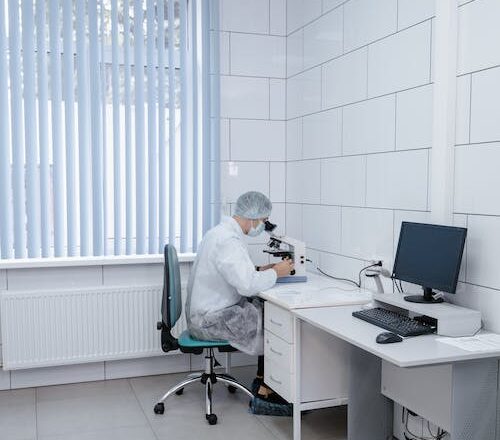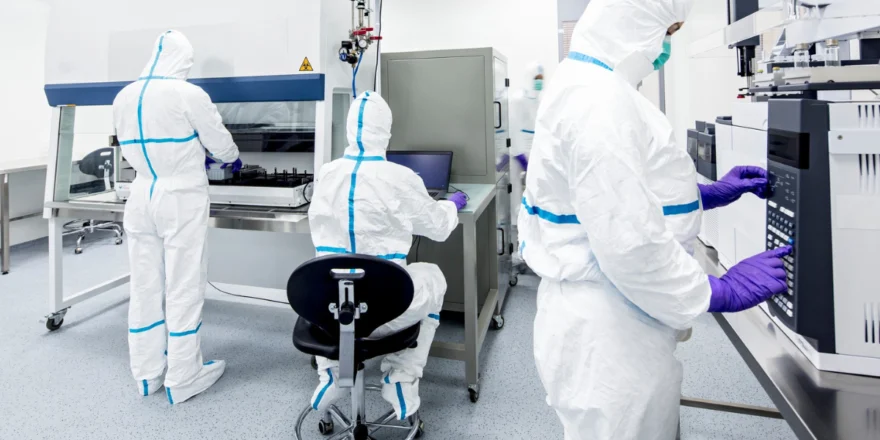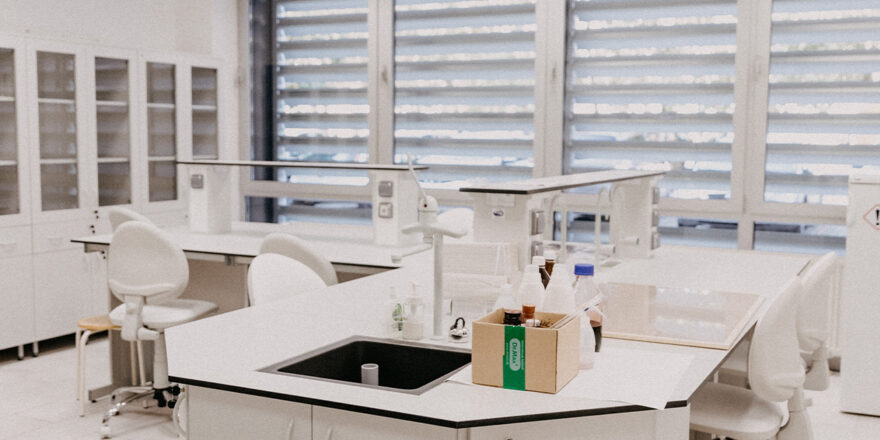Modular laboratory furniture has revolutionised how we design and customise our laboratory environments. With its wide range of advantages as well as versatile applications, modular furniture has become an excellent choice for laboratory spaces of all sizes. As laboratory furniture manufacturers continue to innovate, the benefits of modular solutions have become increasingly evident.
These labs’ furniture can adapt to various laboratory environments for research, educational institutions, or industrial labs. This modular lab furniture offers the flexibility to meet your requirements.
Moreover, you can easily adjust your chair according to your requirements. Here in this blog, you will come across the numerous advantages of using flexible modular laboratory benching. But let us first understand what modular lab furniture means. So, let us get started.
Understanding Modular Lab Furniture
Modular laboratory furniture makes it easy to keep up with developments, design trends and regulatory requirements to make sure your laboratory remains fully loaded with modern equipment.
You can customise your furniture and organisation of your lab and can create a desirable layout. Multiple numbers of furniture are available in the market, such as lab benches, storage cabinets, plinth systems and many more.
Now that you know what modular lab furniture is let us look at what lab benches are.
What Are Lab Benches?
A laboratory workbench, also known as a lab bench. It is a work table in a scientific laboratory that provides the space as well as the surface for conducting tests and processes, storing lab equipment, and creating workstations for technicians or students.
Depending on the customer’s specific needs, a laboratory workbench surface can be constructed from various materials. Examples of surfaces include edge-grained maple, self-edged laminate, PVC-edged laminate, composite resin wood, electrostatic dissipative (ESD) laminate, epoxy resin, chemical-resistant laminate, and stainless steel.
A lab bench typically includes cabinetry like drawers and shelves, which, like the surface, are available in various materials. Lab benches can include industry-specific features such as epoxy and stainless steel sinks, gas valves as well as fume hoods. Bench load capabilities can reach hundreds of pounds, and benches with wheels can boost mobility and convenience of usage.
Advantages Of Modular Laboratory Benches
Having modular benches in your laboratory can be beneficial for you and your health. Let us see how:
1. Enhanced Safety
Lab benches are designed to provide a safe space for conducting experiments. They often contain features like raised edges to prevent spills and accidents. This reduces the risk of chemicals or materials accidentally coming into contact with researchers, minimising potential harm.
2. Organised Workspace
Lab benches have designated areas for different equipment and tools. This organisation helps researchers quickly locate what they need, leading to more efficient work. By preventing clutter and confusion, lab benches contribute to a smooth workflow.
3. Chemical Resistance
These benches are typically constructed from materials that are resistant to chemical damage. This safeguards both the user and the bench itself. It ensures that any spills or chemical interactions don’t harm the bench’s structural integrity or compromise the safety of the experiment.
4. Durability
Lab benches are built to withstand the demands of a laboratory setting. They can handle heavy equipment, frequent use, and potential impacts, making them a reliable and long-lasting investment for laboratories.
5. Ergonomic Design
The design of lab benches takes ergonomics into account. They provide features like adjustable heights to allow researchers to work comfortably. This reduces physical strain and fatigue during long experiments, promoting researcher well-being.
6. Containment Of Hazards
Certain lab benches are designed to handle hazardous materials safely. They come equipped with features like built-in ventilation systems or chemical-resistant surfaces, preventing the spread of harmful substances and maintaining a controlled environment.
7. Customisation Options
Lab benches can be customised to fit specific experiment requirements. Researchers can choose different sizes, configurations, and accessories to create a workspace that meets their requirements. This adaptability makes lab benches versatile for various types of experiments.
8. Equipment Stability
Stability is crucial when working with delicate instruments and glassware. Lab benches provide solid surfaces that prevent equipment from wobbling or tipping over, reducing the risk of accidents and breakages.
9. Efficient Space Utilisation
Laboratories often have limited space, and lab benches help maximise it. By providing dedicated areas for equipment and supplies, lab benches ensure that space is used efficiently and that researchers have everything they need within reach.
10. Easy Maintenance
Lab benches are designed in such a way that they are easy to maintain. The materials used in lab bench construction are often resistant to staining and easy to wipe down.
11. Versatility
Lab benches can cater to various scientific disciplines. Whether it’s chemistry, biology, physics, or other fields, lab benches can be adapted to suit different experiment types and requirements.
12. Improved Productivity
The organised and structured setup provided by lab benches enhances researchers’ productivity. With easy access to equipment and tools, researchers can focus on their experiments without unnecessary distractions or delays.
13. Sample Integrity
Lab benches offer a controlled environment for conducting experiments. This helps maintain the integrity of sensitive samples by preventing contamination or unintended exposure to external factors.
14. Compliance With Regulations
Using proper lab benches helps laboratories meet safety and regulatory standards. Certain experiments and materials may require specific containment or handling, and lab benches designed with these requirements in mind ensure compliance.
15. Collaborative Work
Lab benches provide ample workspace for multiple researchers to work together on shared projects. The organised layout encourages collaboration and the exchange of ideas among team members.
Bottom Line
Investing in flexible workbenches allows you to swiftly scale up or down as projects and personnel change. Santech Lab is one of the best laboratory furniture manufacturers for all your requirements. Our lab benches are simple and efficient in design to help you build your lab for flexibility.




